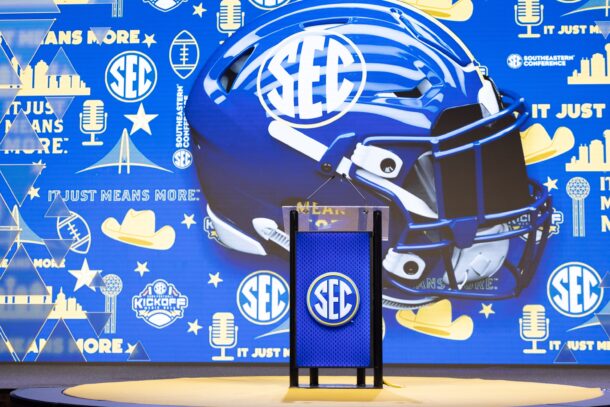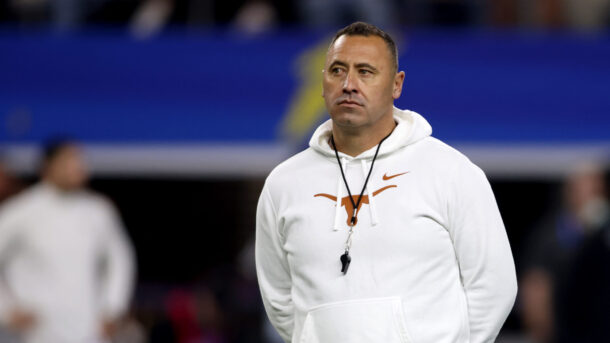Ad Disclosure
The Georgia sports betting bill scene is suddenly getting crowded.
Georgia Rep. Marcus Wiedower (R-119) introduced HB 380, a bill to legalize Georgia online and retail sports betting. His House bill joins a previously introduced Senate sports betting bill, giving state lawmakers plenty of options to get something done this years.
House bill calls for online, retail sports betting
Wiedower’s bill will allow for Type 1 (online) and Type 2 (retail) sports betting licenses. Eligible Type 1 license holders will be Georgia professional sports teams, a professional sports governing body that holds one or more sanctioned annual golf tournaments on a national tour of professional golf, or the owner of a facility in the state that has held an annual invitational golf tournament for professional and amateur golfers for at least 30 years.
Professional sports franchises, and even Augusta National, will be able to offer online sports betting if they receive one of the 16 Type 1 licenses.
A Type 2 eligible license holder must actively hold a retail alcohol consumption dealer license or a retail detailer license. The Type 2 license holders will be able to house in-person sports betting machines for patrons to place sports bets.
The lawmaker’s bill sets the state sports betting tax rate at 15% of adjusted gross gaming revenue. Type 1 license applicants must pay a non-refundable $100,000 application fee and an annual fee of $1 million if awarded a license. Type 2 applicants must pay a non-refundable application fee of $10,000 and an annual fee of $100,000 if awarded a license.
Bets on college sports will be allowed.
No constitutional amendment necessary?
The bill does not require a constitutional amendment to go into effect, a striking difference from past proposed sports betting bills. This means the bill can purely be enacted through legislative action and does not depend on approval from Georgia voters in a general election.
Daniel Wallach, a gaming law attorney, Founder of Wallach Legal and UNHLaw Sports Wagering, told Saturday Down South that it is his belief, and the belief of several state attorney generals, that the Georgia constitution does not prohibit sports betting.
The state’s constitution is clear, Wallach said, in that it only prohibits three categories of gambling; casino gambling, pari-mutuel betting on horse races, and privately-operated lotteries (with an exception for the state-operated lottery).
Sports betting does not fall within these three categories.
“The authorities that have been issued by state attorney generals all over the country have constituted a national consensus, that sports betting is distinct from a lottery due to the predominance of skill inherent to the activity of wagering on sporting events. You’re not just picking a number, you’re making an informed decision based on research, statistic, matchups, a panoply of data to help you make an informed decision on which outcome is more than likely to happen,” he said.
Senate bill already in play
Wiedower’s bill joins SB 57, which also seeks to legalize retail and online sports betting in the Peach State. Introduced by 11 Georgia senators earlier this month, the bill would allow up to 18 online sports betting licenses and businesses holding liquor licenses in the state would be eligible to host retail sports betting kiosks.
The bill was recently discussed in the state’s Senate Economic Development and Tourism Committee. Testimony was heard, but no vote was taken.
A vote to move the bill out of committee is expected next week.
If approved, the bill will allow up to 18 online sports betting licenses (Type 1 licenses), nine of which would be distributed to professional Georgia sports teams, PGA courses, and NASCAR tracks. The remaining nine online sports betting licenses will be awarded to applicants after undergoing an RFP process.
Details on the RFP process are scarce in the bill, as it simply reads “The board shall develop and adopt procedures for such public procurement process.”
The bill sets the online sports betting tax rate at 20% and will allow bets on collegiate sports. Additionally, it will also allow bets on eSports, Olympics, and “other events.”
It also does not require a constitutional amendment to go into effect.
Robert is an expert on sports betting in the United States, specifically the legalization process and regulation surrounding the industry.




